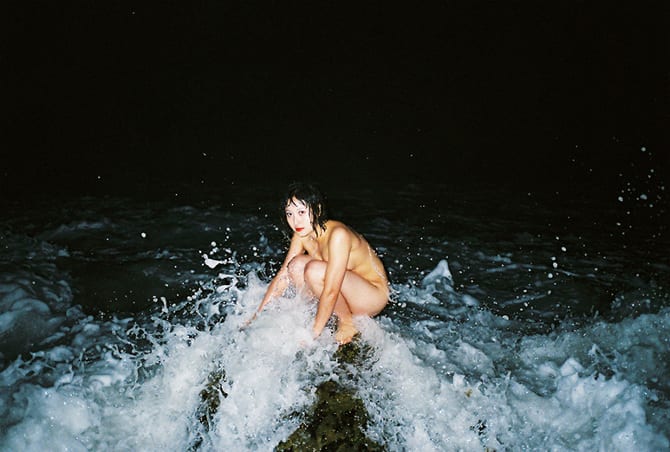Ren Hang was arrested many times for his sexually explicit, joyously celebratory photography. Although he was globally renowned, he never gained the recognition he deserved in his home country, in part because he was repeatedly denied the opportunity to display his work in Beijing and throughout China.
Championed by Ai Wei Wei, and talked of as China’s answer to Ryan McGinley, Ren Hang’s photography was highly explicit, featuring nude group and solo portraits of men and women often contorted into highly performative positions. They were not models, but his friends, and increasingly, his fans, often shot in his tiny high-rise apartment. “I usually shoot my friends,” he once said. “Because strangers make me nervous.”
Ren Hang endured a long battle with depression throughout his life, an experience he would often document on his website, sometimes in the form of poetry, under a menu item titled My Depression.
One such entry from 16 July 2014, put through Google Translate, reads:
Life is indeed a
Precious gift
But I often feel
It seems to send the wrong man
Dries Roelens, who works for Ren Hang’s Belgian gallerist Stieglitz 19, confirmed the death today. He would have turned 30 next month.
Ren Hang was in the process of working on a major solo exhibition at Foam, Amsterdam, after receiving the Outset Exhibition Fund at Unseen
Photography Festival last September.

“There’s no hierarchy between the female and the male model in his work. It’s very telling about these tendencies of sexuality and queerness in Chinese society and how his generation is dealing with it,” Kooiman said. “It’s visual poetry. It’s without limits.”
Ren, his surname, given name Hang, was born March 30, 1987, in Nong’ An, a suburb of Changchun, capital of the northeastern province of Jilin, called the “Detroit of China” for its automotive industry.
Despite a deep affection for his hometown, he left for Beijing at 17 to study advertising.
He was a self-taught photographer, who bought a point-and-shoot camera and began shooting nude images of his friends as a way to “relieve boredom” while studying advertising in college.
He gained solo exhibitions in Antwerp, Athens, Bangkok, Copenhagen, Frankfurt, Hong Kong, Marseille, New York, Paris and Vienna, as well as gaining a hugely passionate organic following on platforms like Flickr, Facebook and Instagram.
He self-published seven monographs before Taschen recently published a retrospective photobook of his work, the first time an established, international publishing company had published his work.
Although he had exhibited in Beijing, and had been featured in the city’s independent magazines, he had a deeply complicated relationship with his home country.
On the times his photographs were shown to the public, it wasn’t unusual for his photos to be defaced at exhibitions or confiscated by officials. His websites were often mysteriously taken offline.
But Ren Hang was entirely disinterested in any sort of political or socially-conscious interception of his work.
“I don’t want others having the impression that Chinese people are robots with no cocks or pussies,” he told Dian Hanson, who edited the Taschen book. “Or they do have sexual genitals but always keep them as some secret treasures. I want to say that our cocks and pussies are not embarrassing at all.”
“What success means to me … I don’t know,” he told Hanson. “I wish that life can just go on. Smoothly.”
Pornographic images have been banned in the People’s Republic of China since 1949, but definitions are kept purposefully vague. But, as one of Ren Hang’s models said to Hanson, his photography helped to leaven a thirst “to break through the social taboo of nudity – for the sake of natural beauty.” May he rest in peace.
Ren Hang’s Instagram feed is here. And his website is here.
